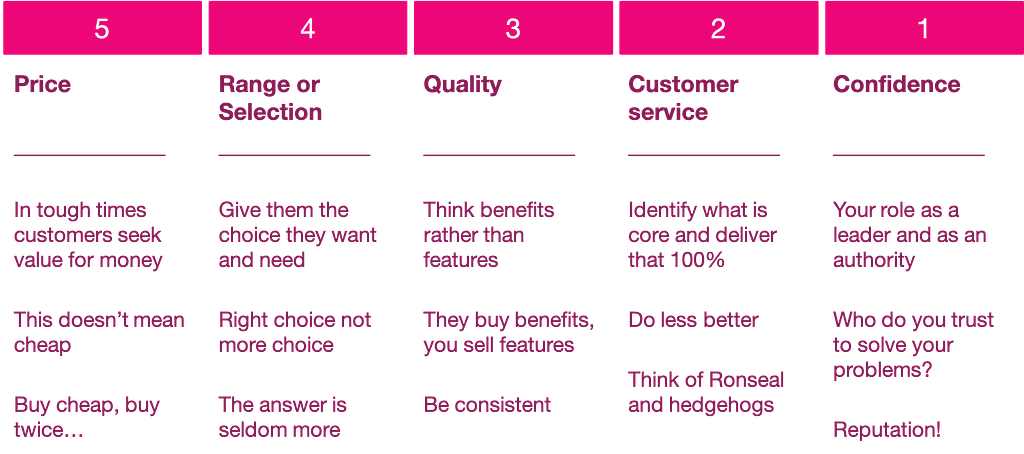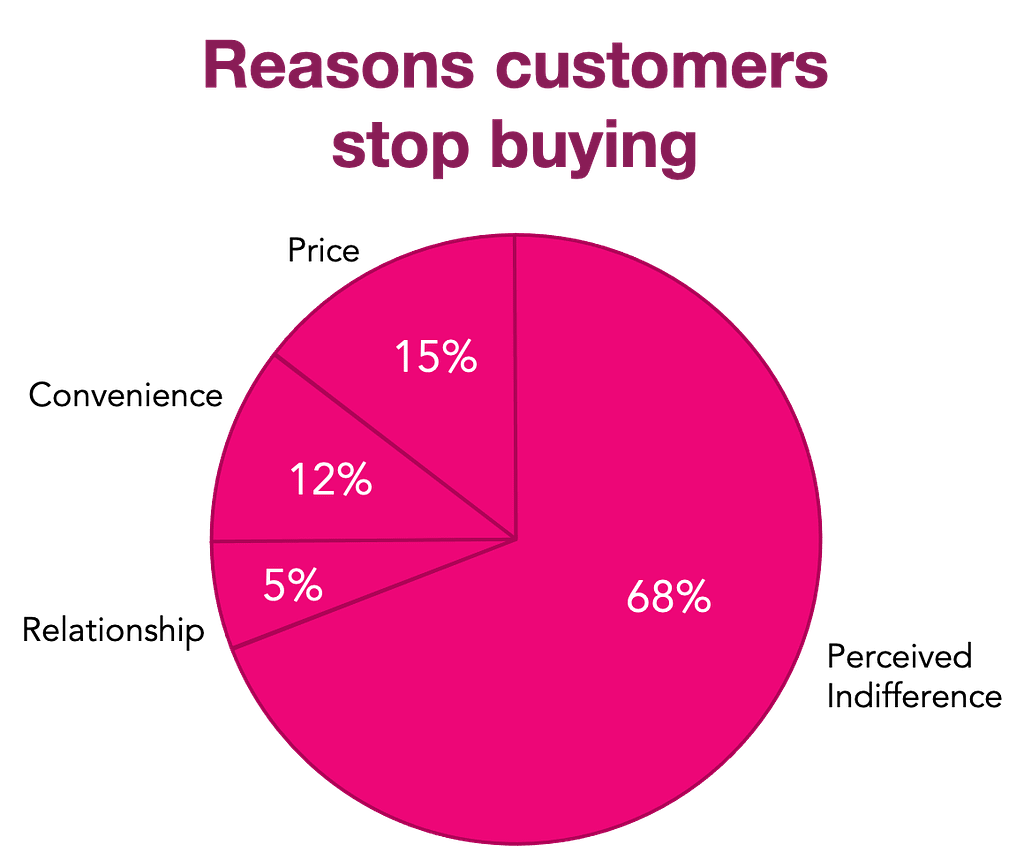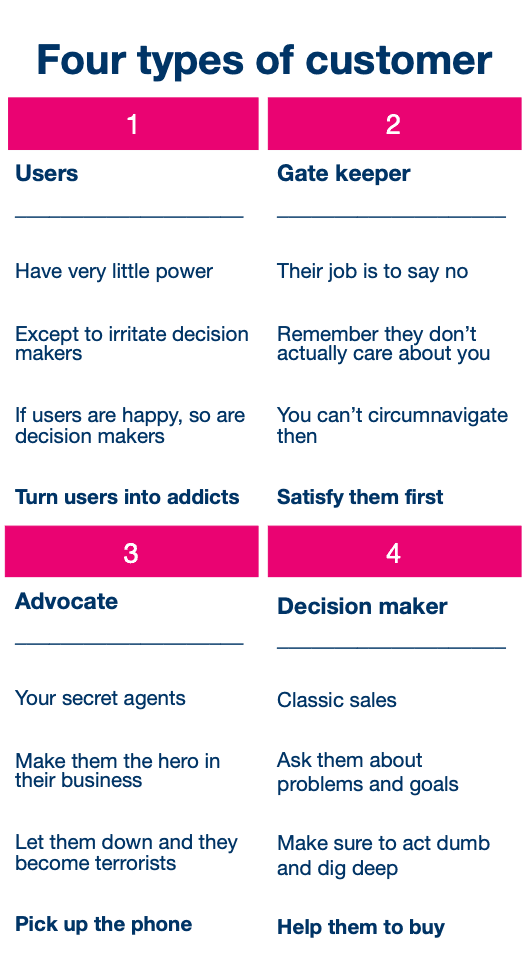Ungerstanding The Four Different Types of Customers
Not all customers are the same, so why should they be treated the same? The customers in your target market may possess similar characteristics or problems, but as entrepreneurs, we must look beyond that. You must pay attention to the users, gatekeepers, advocates, and decision makers.
Otherwise, you’re headed down a dark and gloomy path! In this article, you’ll learn how each of these customers think and behave, along with the strategies you should be using to approach them, so that they’ll keep buying from your business.
Customer decision making – a recap:
Before diving into the four different types of customers, let’s review the reasons why customers buy and stop buying. This information is very insightful when thinking about how to approach and serve the four types of customers.
Reasons Customers Buy From You:
-
- Confidence – Focus on your role as a thought leader and an authority. Make sure you have a good reputation. Who do you trust to solve your problems
- Customer service – Identify what is core and deliver that 100%. Do less better.
- Quality – Think benefits rather than features. They buy benefits, you sell beneficial features. Remember to provide consistent quality.
- Range or Selection – Give them the choice they want and need. Don’t give them too many choices.
- Price – In tough times, customers seek value for money.

Reasons Customers Stop Buying:
Since customers assume different roles, we as business owners must form and maintain different types of relationships with these customers, depending on their role.

Four Types of Customers
We usually spend most of our time focussing on the decision makers alone and this can lead us to ignore the other influential people who come into contact with our product or se
1. Users
Users may not ever pay you money directly because they could be your customers’ customers. They have very little power, except to irritate decision makers. If users are happy, so are decision makers. Your strategy with users should be to listen to and satisfy them as much as you can. Make them somewhat addicted or attached to your product/service.
Challenge:
Who are the people you’re trying to please with your product/service? These are your users. How can you engage with them better? Think about how well you’ve been listening to them. Are you fully listening to their wants and needs?

2. Gatekeepers
Their job is to say no and to prevent you from selling. Remember, they don’t actually care about you. You can’t circumnavigate them, so you must satisfy them first. Ask them: What do you need from me? An example of this would be having the proper health and safety standards in place when doing a construction job. If you don’t, there will be a gatekeeper that says you can’t continue with the job until you’re meeting the safety standards.
3. Advocates
These are your loyal customers, or what we like to call, your secret agents. They may even be people who promote you. Make them the hero in their business. Let them know how great they’ve been doing and they will do the same for you. Do not let them down or else they may turn on you… and that’s not a situation you want to be in! LinkedIn is a great tool to use to keep in contact with your advocates. You want to nurture your relationships with them.
Challenge:
Who are your advocates and how can you better engage with them? Think of your biggest fans.
4. Decision Makers
Think of the classic sales scenario, where you’re digging deep and asking customers about their problems and goals. You want to help these customers buy.
Summary
Every business has users, gatekeepers, advocates, and decision makers. It’s important to identify which is which and stay connected with them (occasionally they are the same people at different times of the buying cycle).
If you spend the time and energy to cater to their specific personalities, their needs and wants, you will be rewarded.
Remember, so much of being successful in business is about nurturing your relationships.
What Next:
Has this article got you thinking about your business and how you want to grab the reins and drive it forward but you struggle to find the time or feel that you lack the skills or knowledge to do so?
Are you looking at your screen wondering how or if Good2Great could possibly help you to build a better future for you and your company?
If so, why not check out free ways to learn more either in the fun but growth focussed ‘Friday Hub Zoom Room‘ or let’s meet and chat about your business – it’s our passion after all! Just click this link, it will show you availability in my calendar – just grab a slot that suits you and it will automatically set up and schedule a Zoom meeting and send all the necessary invitations to calendars and email… https://bit.ly/meetingwithjohnny
OR – perhaps you’re still at the start of your business journey – check out Business Start Up Masterclasses



















